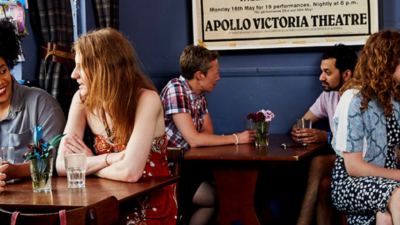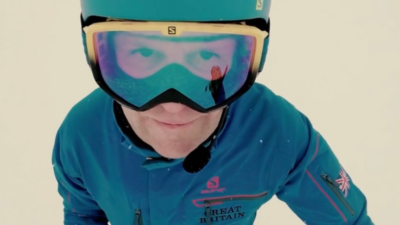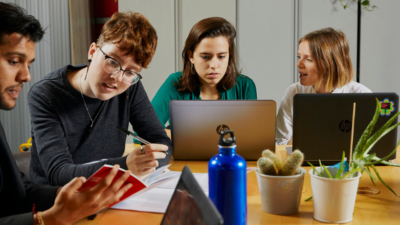
8 Ways to be a better ally to LGBT Disabled people
As this year’s Disability History Month comes to an end, Stonewall’s Accessibility Forum have highlighted 8 ways you can become a better ally to LGBT disabled people.
One in five LGBT people have experienced a hate crime or incident due to their sexual orientation and/or gender identity in the last 12 months, and one in three disabled people feel that disability prejudice is still commonplace.
Being both disabled and LGBT, we face discrimination against both parts of our identity. The reality of living with an intersected identity means we often face multiple barriers and adversity in everyday life.
As LGBT disabled people, we are heavily marginalised within society, and our voices and experiences are often overlooked. We need allies to take action and step up to support the LGBT disabled community. Take the first step in your allyship journey by reading, practising and sharing the points below.
1. Fight for accessibility
Society is designed to meet the needs of non-disabled people. As a result, disabled people are often excluded from events, activities and places that are inaccessible. It’s not surprising that a third of disabled people experience difficulties relating to their impairment when trying to access public, commercial and leisure goods and services. This is particularly true of LGBT spaces that often revolve around protests, marches, and club nights. Even in the wake of the pandemic, digital accessibility has become a crucial yet often overlooked factor. For disabled people to feel welcome and valued in the LGBT community these spaces need to become more accessible.
If you help to run these events, choose venues and plan events that are accessible to all parts of the LGBT community. If you attend these events, ask the organisers what they are doing to make it an accessible space for everyone.
It’s crucial that you ask these questions and ensure accessibility is top of the agenda for all spaces and events.
2. Watch your language
Language is a crucial tool for marginalised communities – it helps us identify ourselves in ways that feel empowering. This is particularly true for the LGBT and disabled communities. Every LGBT disabled person will have a unique relationship to language and a preference for what terminology they prefer. A basic level of respect is using the correct terms and language the person has chosen for themselves. You should always be led by the person and if you’re unsure, just ask them what they prefer.
Ableism is often expressed and reinforced through language. Much of our colloquial language is filled with ableist words and metaphors – there’s a helpful article here about inclusive language and alternatives to commonly use ableist words. As an ally, it’s vital that you’re not using ableist, homophobic, biphobic or transphobic language and that you challenge anyone who does.
3. Be responsible for your own learning
A key part of allyship is learning and expanding your knowledge – but be mindful of who and what you’re asking. You should never ask a person about their sexuality or disability unless they speak to you about it first. Always be led by the person and never ask intrusive questions.
Even when someone is happy to share their experiences, it’s crucial to remember that a marginalised person is not responsible for teaching you about their identity. Instead of relying on LGBT disabled people to give you the answers, do your own research and use your own resources to expand your learning – we’ve included some tips at the bottom to get you started.
4. Challenge ableism
Ableism is the systemic exclusion and oppression of disabled people. Not only is ableism evident across society, it’s also widespread within the LGBT community. One in four LGBT disabled people whose activities are limited a lot because of a health problem or disability have experienced discrimination or poor treatment from others in their local LGBT community – because of their disability.
If you are a member of the LGBT community you need to be aware that other people’s lives and experiences may be very different to your own, especially if they suffer multiple levels of discrimination due to other elements of their identity, such as disability. Your role as an ally is to educate yourself so you are equipped to speak out against ableism. If you witness people making ableist or negative comments, challenge it whenever it’s safe to do so. If you see it online, report it.
5. Respect our experiences
It’s essential that you recognise every disabled LGBT person as an individual. We all have our own unique experiences, voice and identity. There are a wide array of disabilities that impact people in different ways, and how this intersects with their sexuality will also vary. One person’s experiences don’t represent the whole LGBT or disabled community – so please listen to our experiences but don’t expect us to be a spokesperson for all LGBT disabled people.
6. Don’t make assumptions
Disabilities are complex and varied, and many people have disabilities that are hidden and not immediately obvious. LGBT and disabled people don’t look or act in a particular way. You should never assume or make assumptions based on a person’s sexuality, gender, or disability.
One in three people believe that disabled people are less productive than less disabled people. These misconceptions are routed in a lack of understanding. An important way to step up as an ally is to challenge your own assumptions.
7. Keep it confidential
If a person comes out to you or discloses their disability, it’s important to not share this with anyone unless they have said you can. Even if a person has spoken to you about it, they may not be out to everyone, so treat any information they’ve shared about their sexuality or disability as confidential. If you feel this information needs to be shared for any reason, always speak to the person and get their permission first.
8. Support LGBT disabled organisations
There are a whole host of organisations doing incredible work for the LGBT disabled community. Step up as an ally by learning and supporting these charities. Read our article to find out about some of the organisations and collectives you should be supporting.




